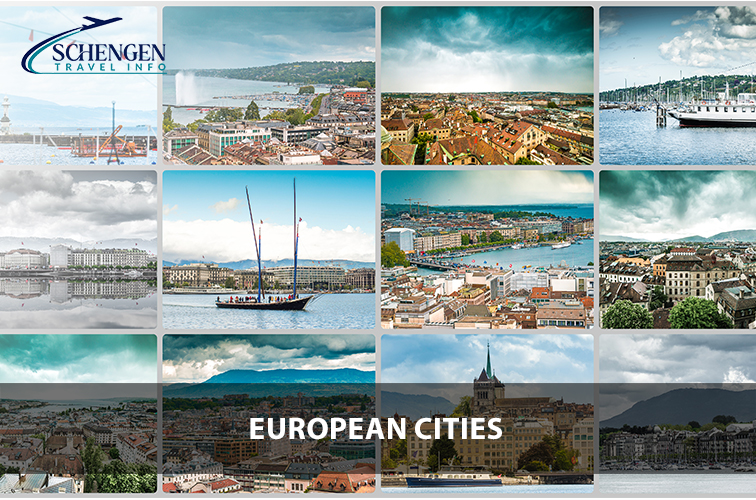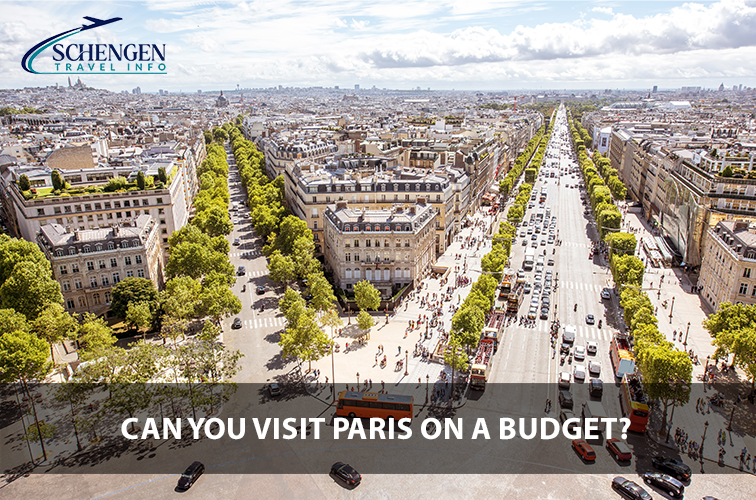Paris tempts holidaymakers with croissants at dawn, art-filled afternoons and sparkling riverbanks after dark. Yet the first question many ask is simple—is Paris expensive to enjoy such moments?
This guide weighs every major expense, from accommodations to food & getting around and discovering the major attractions. In fact, you will see the average costs and seasonal tips that reduce your stay costs, and food hacks locals swear by. Also, to enjoy all of this, you can simply grab a France visa from UK.
Now, without any further ado – let’s get right into your journey of knowing if Paris is actually expensive or not?
Quick Summary – The blog breaks down how expensive Paris truly is. It also guides the travelers to balance the cost and comfort with the help of many insights and tips. You can check the comparisons of the daily expenses across the budget levels. Additionally, you get insights into the seasonal savings and details on the economical transport and dining options.
Paris sits in Europe’s upper-mid price tier, yet it needn’t empty your wallet. Think in daily bands:
Accommodation and eating out make up about 70 % of the spend, while museum tickets rarely cross €25. Travel passes limit the metro (travel) costs, and many iconic sights, including Notre-Dame’s forecourt and the Seine quays, remain free!
Paris accommodation spans every budget, yet nightly rates swing with both the area and season. A little planning can help you save a lot on your stays!
Note: Expect a 15–30 % price rise during summer, Fashion Week and major sports fixtures.
You will get the deepest discounts on hotels usually in the January, February and early March. This is the time, when tourism slows and the budget accommodations in Paris costs dip by a quarter. For wallet-friendly stays, try:
All lie within 20-30 minutes of the centre by Metro, keeping sightseeing simple!

According to the recent reports, Paris sits in Europe’s top ten priciest cities, though it still trails Geneva and Copenhagen.
Planning to visit Paris? Then, apply for France Schengen visa from UK today to get started!
Dining in the Paris ranges from the pocket-friendly pastries to the Michelin splurges. So, daily food spend can land anywhere between €25 and €120. Knowing the going rates helps you plan—and dodge sticker shock when the bill arrives.
The Latin Quarter around Rue Mouffetard still dishes up three-course menus for about €18. But, cross the river to the Champs-Élysées and a similar plate can cost around €35. Then, there are the Marais wine bars that have middle-range food prices, while Belleville’s multicultural canteens serve main courses under €12. Want to relish all of these and much more? Book a France Schengen visa appointment from UK today!
With more than 300 stations inside a compact city, the Metro is usually the cheapest, quickest way to hop between sights. Fares rose in the recent years, yet still undercuts many other capitals (in Europe), and smart passes keep costs predictable.
A “ticket t+” now costs €2.50 from machines or €2.15 in a contactless 10-ride carnet. It allows an unlimited 90-minute transfers across the Metro & RER + city buses and trams within Zone 1, provided you do not exit the network gates.
The bike rentals in Paris or Vélib’ day passes cost €5 and include unlimited 30-minute bike rides. These are perfect to explore those riverfront paths. Unfortunately, shared e-scooters were phased out in 2023, although privately owned scooters are still available, and you can rent them (must adhere to the local laws). For short hops, central Paris is walkable—the Louvre to Notre-Dame takes 20 unhurried minutes on foot!
The popular attractions are usually not that costly but visiting many of them can eat up your budget quickly. Instead, a little planning keeps your cultural experience bill of the Paris in check. Entry fees for such attractions usually sits in the mid-range for Europe, and passes or free-entry schemes can reduce the costs even further.
Also, try to book the timed entry tickets for the busiest spots to avoid last-minute premium surcharges!
The Paris Museum Pass covers more than 30 museums and monuments. Prices for this pass are €62 (2 days), €77 (4 days) and €92 (6 days). In fact, you get a break-even on the pass price after just visiting two paid sites per day. You can achieve this easily if you pair the Louvre with the Orsay, Arc de Triomphe, or Versailles. The broader Paris Pass folds in a River Seine cruise and travelcard, yet only pays off if you intend to use both.
Choose anyone according to your preferences and ensure that you get a France Schengen Visa for a hassle-free holiday experience in the Paris!=
On certain months, the National museums in Paris waive entry on the first Sunday of each month. If you are a resident of the EU and are Under-26 (valid ID required), then you enjoy free admission to many of the state museums and monuments. Apart from these, there are some always-free spots in the Paris. These include the Notre-Dame’s forecourt, street art in Belleville and open-air markets like Marché d’Aligre. They are popular for delivering the high-culture vibes!

Absolutely, with a handful of budget-friendly plans, the City of Light – Paris, costs far less than what its luxury ambience may suggest:
With these tactics, a thrifty traveller can keep daily spending to roughly €85-100 while on their Paris holiday!
Paris is not that expensive for families, even though its chic reputation suggests otherwise. In fact, self-catering flats in residential districts average €150-230 a night and include kitchens that help you minimise breakfast and snack costs. Children under four can travel free on the Metro and those from 4-9, can ride for the half price. On the other hand, most state museums let under-18s in without a ticket.
Restaurants offer fixed-price kids’ menus from about €10-14 and crêpe stalls keep hunger at bay for even less. Add free parks, riverbank playgrounds and regular open-air festivals, and a day’s sightseeing, food, and transport for four often lands below €200-240.
So, is Paris expensive? Well, Paris can stretch a budget or respect it. The choice lies in when you travel, where you stay, and how you fill your days with attractions/experiences. Armed with the costs, metro tips and free cultural attractions shared above, you now hold the tools to plan a Paris break that blends café culture with big-ticket thrills without the credit card pain. Keep an eye on off-peak deals, load a Navigo pass, and let street markets handle lunch.
Still worried about securing a France visa appointment from UK? Waited for a long time to get a slot only to see them disappear within seconds when released?
With SCHENGEN TRAVEL INFO, you can skip all these challenges. We are a professional visa agency in the UK offering blazing-fast appointments and simple online application forms. With an appointment in hand, you can easily speed up the entire visa process and obtain your France visa in a matter of days!
Ready to seize those savings? Secure your dates, sort the paperwork for your France trip, and start counting down to your first bite of macarons in the City of Lights!
Carry both. Cards will come in handy for hotels, restaurants and contactless Metro gates. On the other hand, contactless Visa or Mastercard works fine. Still tuck €50–€100 in notes and coins for market stalls, small bakeries, café terraces and public toilets.
Service is included in menu prices, so locals simply round up or leave loose change. Add around 5 % of the bill (optional) for good service or when paying by card.
Uber fares start lower than licensed Parisian taxis, especially for short city hops, yet prices surge sharply when rain or strikes hit. A ten-minute ride averages €10-14 on Uber versus about €12-15 in a taxi.
For tight budgets look to the east of Paris (19/20 arrondissements). The 19th and 20th arrondissements offer hostels and family apartments from €35-45 a night. Plan your stay in such a place from where you can reach the central hub of Paris in 20-30 minutes. You will save around 20 % compared with a similar room in the 1st.
Metro lines run from around 05:30 to 01:15 on weekdays and until about 02:00 on Friday and Saturday nights. When the last train departs, Night Bus routes marked “N” cover main avenues, so late dinners and concerts rarely require an expensive taxi ride.